© 2025 MJH Life Sciences™ , Patient Care Online – Primary Care News and Clinical Resources. All rights reserved.
What’s New in COPD? A Recap of 7 Key Studies for Primary Care
COPD gets an early start, jury still out on nocturnal oxygen, breath test could distinguish COVID-19—scroll through these slides for concise summaries of the latest research findings.
Chronic obstructive pulmonary disease (COPD) gets an early start, jury still out on nocturnal oxygen, breath test could distinguish coronavirus disease 2019 (COVID-19)—as year’s end approaches, these and other developments headline the latest news in COPD research.
Scroll through the slides below for concise summaries of the latest findings.
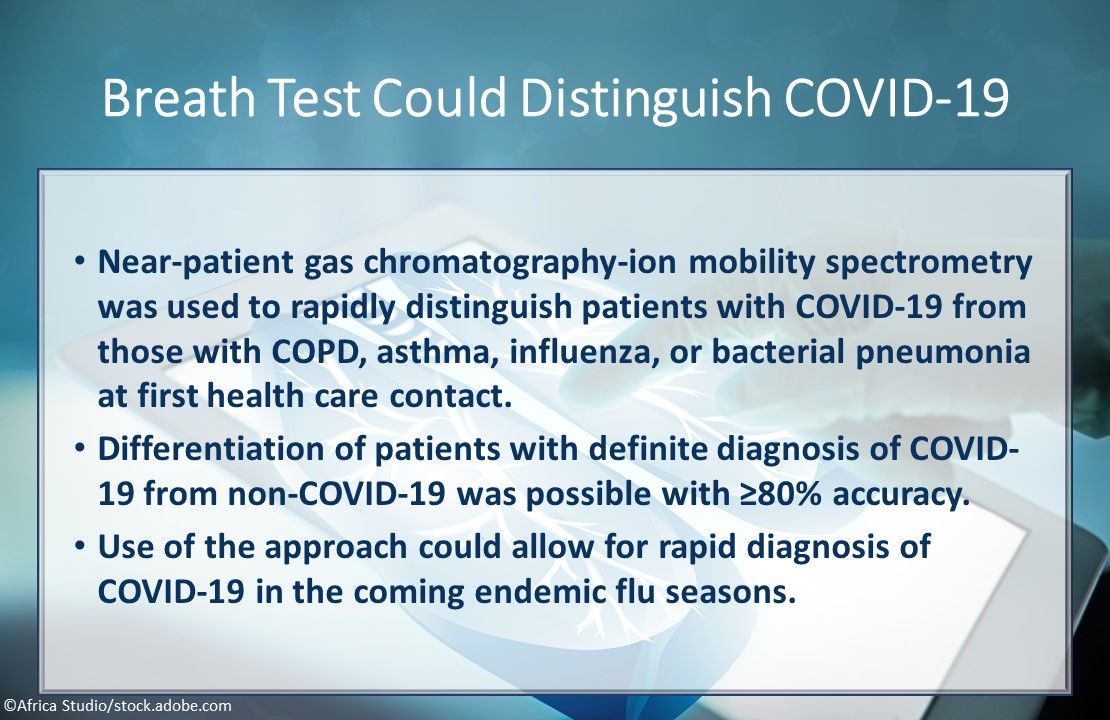
Breath test could distinguish COVID-19. Near-patient gas chromatography-ion mobility spectrometry was used in a feasibility study to rapidly distinguish patients with COVID-19 from those with COPD, asthma, flu, or bacterial pneumonia at first health care contact.
Differentiation of patients with definite diagnosis of COVID-19 from non-COVID-19 was possible with ≥80% accuracy. Use of the approach could allow for rapid diagnosis of COVID-19 in the coming endemic flu seasons. Lancet.
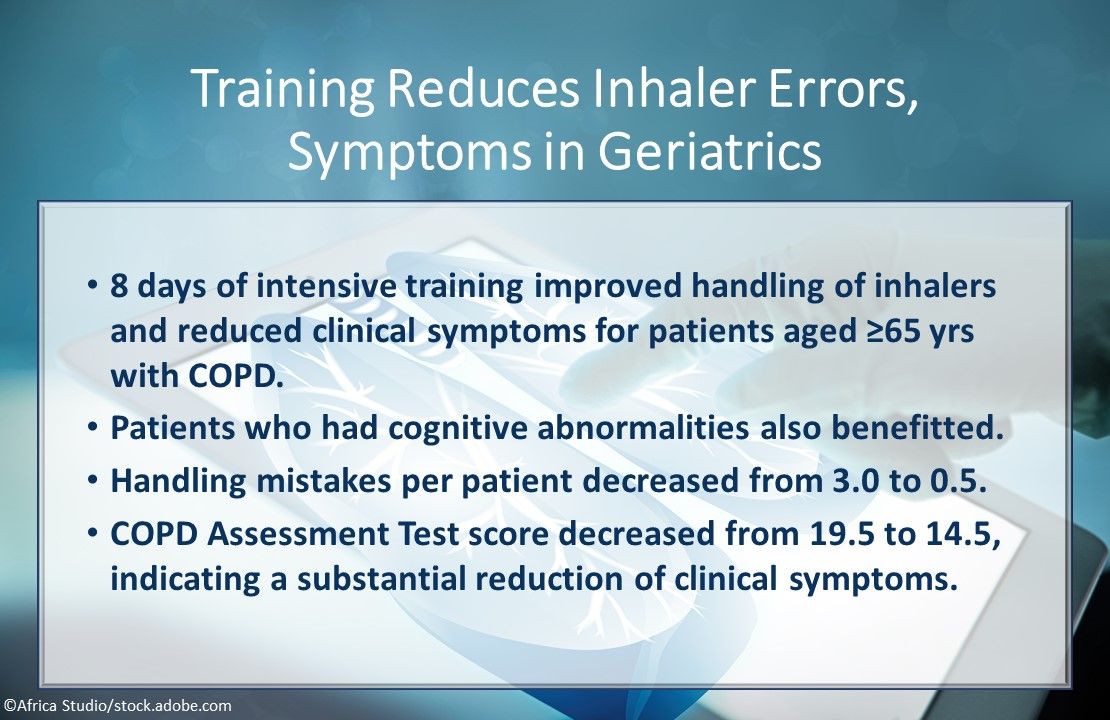
Training reduces inhaler errors and symptoms in geriatrics. For patients aged ≥65 years with COPD, intensive training for 8 days improved their handling of inhalers and reduced clinical symptoms in a prospective intervention study. Those who had cognitive abnormalities also benefitted. Handling mistakes per patient decreased from 3.0 to 0.5. COPD Assessment Test score decreased from 19.5 to 14.5, indicating a substantial reduction of clinical symptoms. Forced expiratory volume in 1 s and forced vital capacity increased only slightly. BMC Geriatrics.
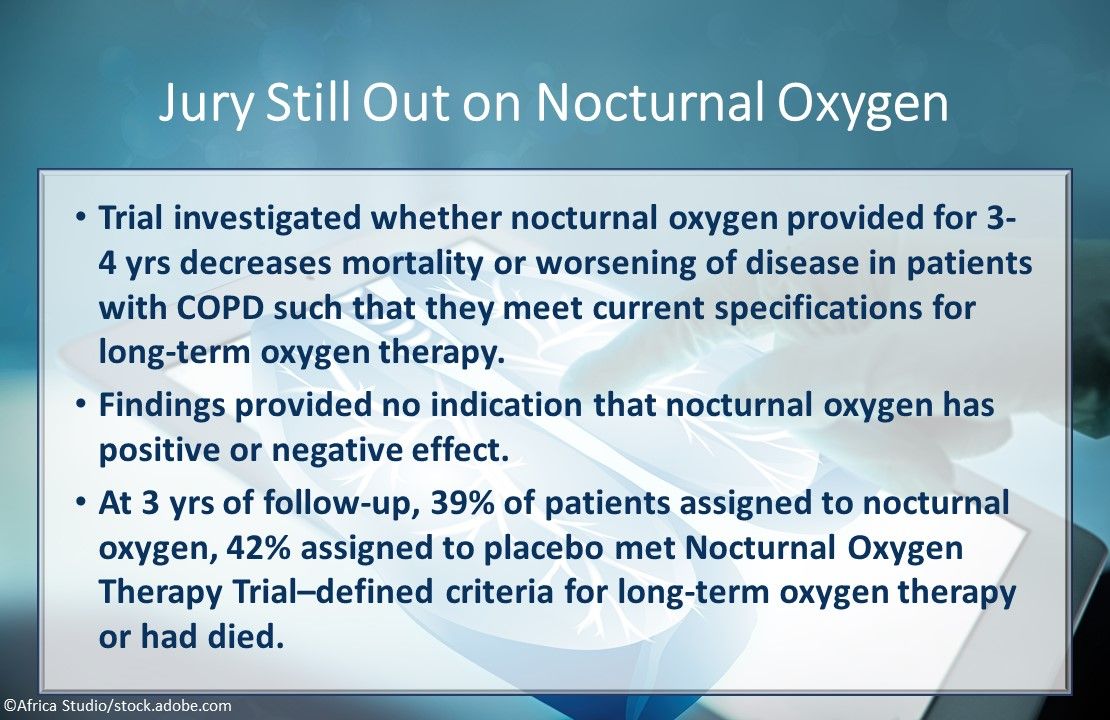
Jury still out on nocturnal oxygen. In a trial of whether nocturnal oxygen provided for 3 to 4 years decreases mortality or worsening of disease in patients with COPD such that they meet current specifications for long-term oxygen therapy, the findings provided no indication that nocturnal oxygen has a positive or negative effect. At 3 years of follow-up, 39% of patients assigned to nocturnal oxygen and 42% of those assigned to placebo met Nocturnal Oxygen Therapy Trial–defined criteria for long-term oxygen therapy or had died. New England Journal of Medicine.
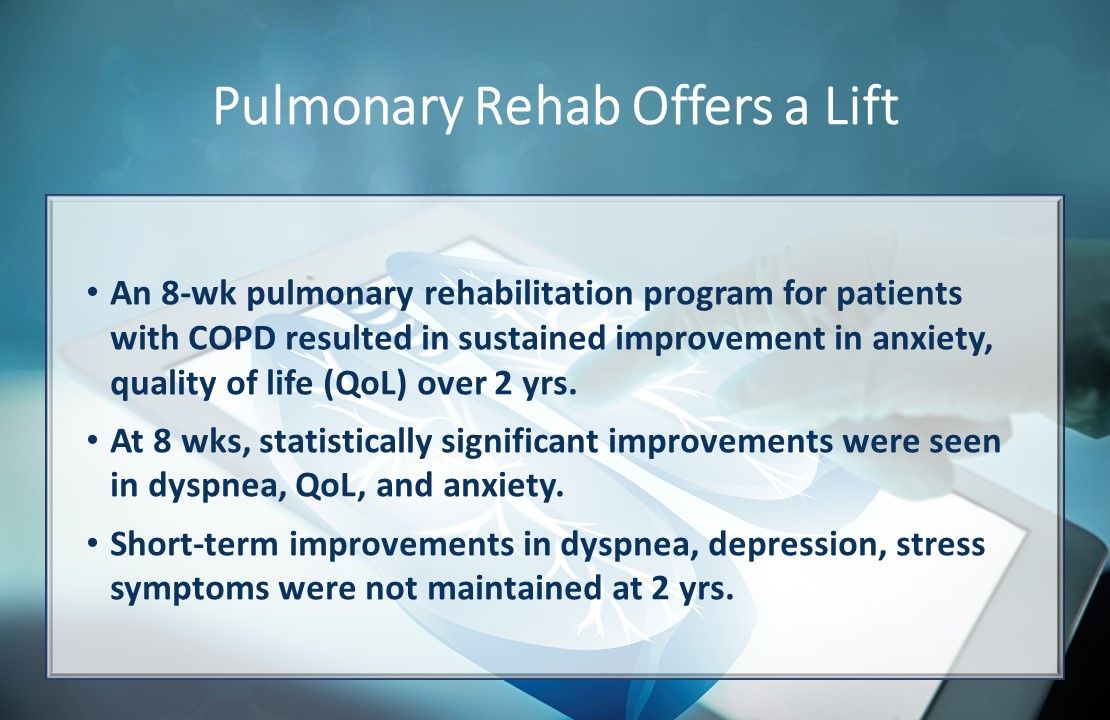
Pulmonary rehab offers a lift. An 8-week pulmonary rehabilitation program for patients with COPD resulted in sustained improvement in anxiety and quality of life (QoL) over 2 years. At 8 weeks, statistically significant improvements were seen in dyspnea measured by modified Medical Research Council questionnaire, QoL assessed by Saint George’s Respiratory Questionnaire, and anxiety measured by Anxiety Inventory for Respiratory Disease and Depression Anxiety Stress Scale. Short-term improvements in dyspnea, depression, and stress symptoms were not maintained at 2 years. Chest.
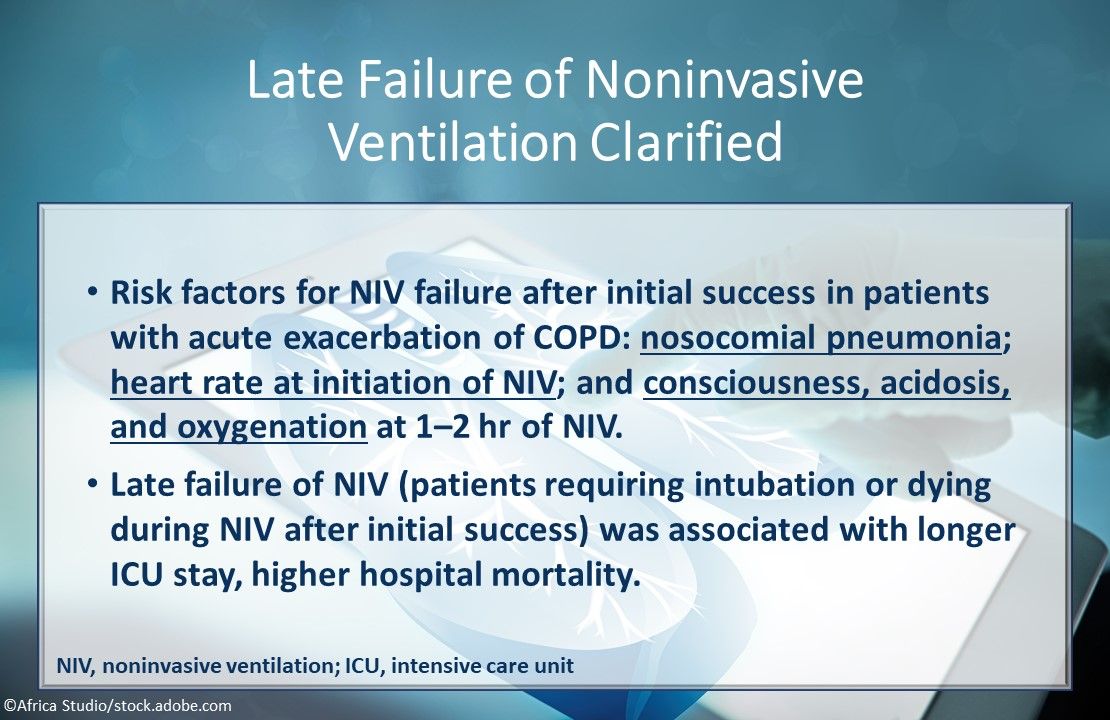
Late failure of noninvasive ventilation clarified. In a recent study, the risk factors for noninvasive ventilation (NIV) failure after initial success in patients with acute exacerbation of COPD were nosocomial pneumonia; heart rate at initiation of NIV; and consciousness, acidosis, and oxygenation at 1–2 hours of NIV. Late failure of NIV (patients requiring intubation or dying during NIV after initial success) was associated with longer ICU stay and higher hospital mortality. Canadian Respiratory Journal.
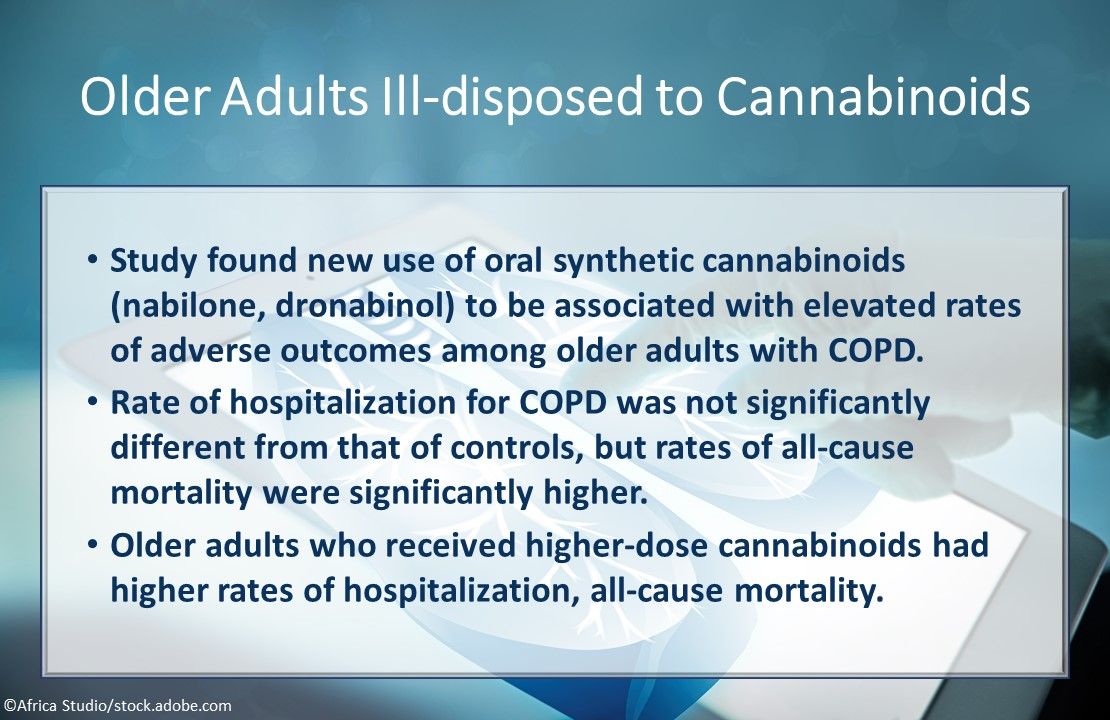
Older adults ill-disposed to cannabinoids. New use of oral synthetic cannabinoids (nabilone, dronabinol) was found to be associated with elevated rates of adverse outcomes among older adults with COPD. Their rate of hospitalization for COPD was not significantly different from that of controls, but rates of all-cause mortality were significantly higher. Those who received higher-dose cannabinoids had higher rates of hospitalization and all-cause mortality. Thorax.
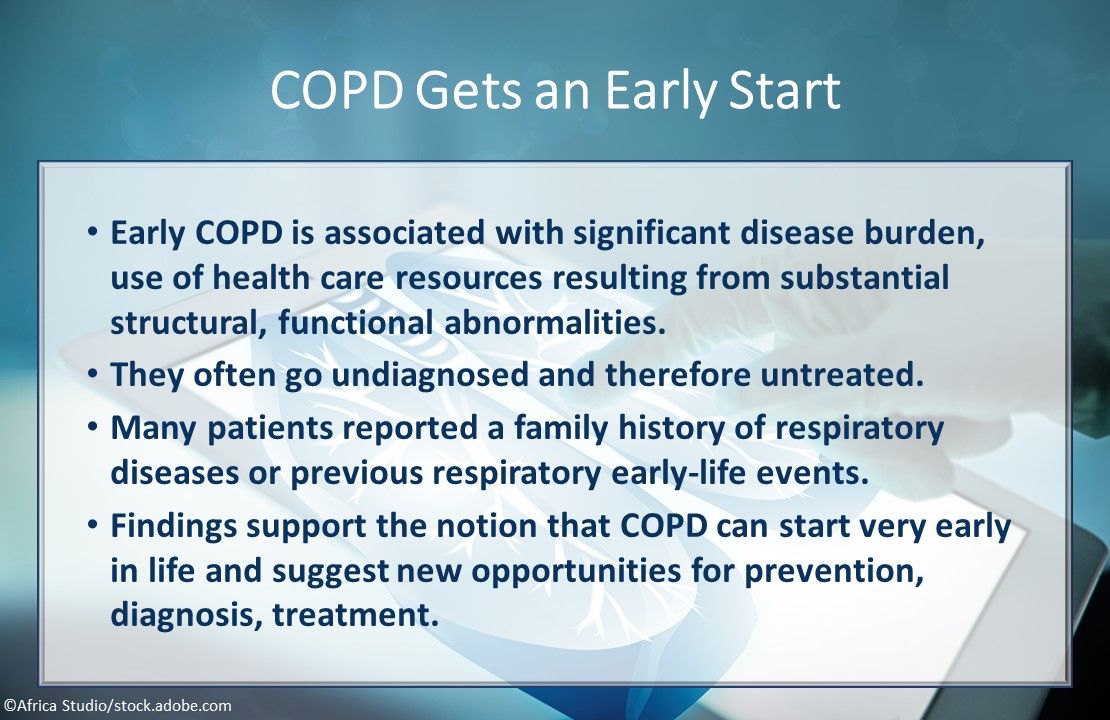
COPD gets an early start. Early COPD is associated with significant disease burden and use of health care resources resulting from substantial structural and functional abnormalities that often go undiagnosed and therefore untreated, a study showed.
Many patients reported a family history of respiratory diseases or previous respiratory early-life events, supporting the notion that COPD can start very early in life and opening new opportunities for prevention, diagnosis, and treatment.
Related Content:




